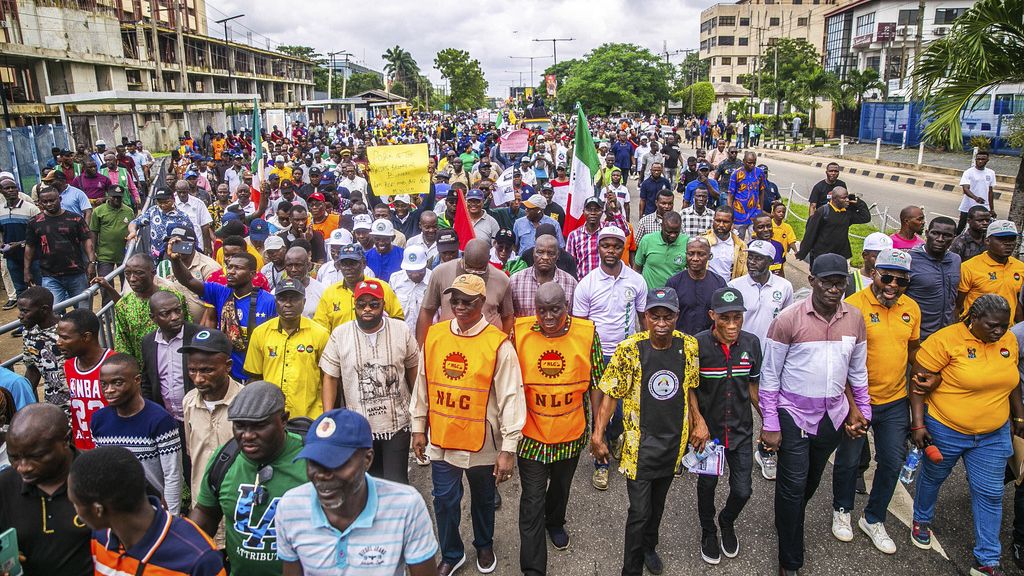Nigeria’s prominent labor unions, the National Labour Congress (NLC) and the Trade Union Congress (TUC), have jointly announced a nationwide indefinite strike set to commence on October 3rd. The move is in protest of the government’s handling of the escalating cost of living, which has taken a toll on the country’s citizens.
The NLC and TUC revealed that they were left with no choice but to initiate the indefinite strike as the government had not adequately addressed their concerns during negotiations aimed at alleviating the financial burdens faced by Nigerians.
In a joint statement, the labor unions expressed their disappointment with the government’s inaction, stating, “The government has totally abdicated this responsibility and has shown gross unwillingness to act, abandoning Nigerian people and workers to excruciating poverty and affliction.”
Nigeria, Africa’s largest economy, has experienced significant spikes in living and transportation expenses following the government’s removal of a petrol subsidy and the subsequent depreciation of the local currency, the naira.
With inflation soaring at 25 percent and fuel costs tripling since President Bola Ahmed Tinubu eliminated the subsidy upon taking office in May, the impact on ordinary Nigerians has been profound.
The NLC and TUC have called upon all workers to cease their activities starting from October 3rd and have announced plans for street protests.
The Tinubu administration has acknowledged the challenges posed by these economic reforms and has implemented measures to mitigate their effects. These measures include financial assistance to state governments, the provision of transportation alternatives, and support for small businesses through loans.
The NLC represents a wide range of industries, including nurses, road workers, and printers, while the TUC represents senior bank employees, high school teachers, and others.
In the past, Nigerian unions have issued strike threats or engaged in strikes, often leading to negotiations. The extent of the impact of the upcoming industrial action remains uncertain.
In August, the NLC and TUC organized a strike addressing the same issues, resulting in the closure of numerous businesses, government offices, markets, and banks in the capital city of Abuja. The impact of the strike in Lagos, Nigeria’s economic hub, was more mixed.
President Tinubu defended the decision to end the fuel subsidy, emphasizing its necessity due to the substantial annual cost to the government of maintaining artificially low petrol prices. Despite being a major crude oil producer and an OPEC member, Nigeria lacks sufficient refining capacity, compelling it to import the majority of its fuel requirements.





